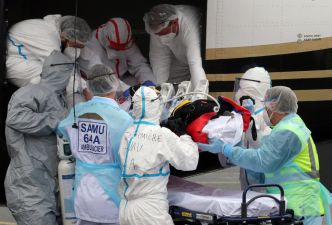A coronavirus variant first discovered in Brittany in northwestern France has stirred concern because it may not be picked up in tests as readily as other forms of the disease.
Deepening scrutiny of the Breton variant, as it is known, comes as France battles an aggressive surge in infections that led president Emmanuel Macron to impose a third national lockdown from Saturday. Schools and business will remain closed for four weeks.
But the dominant strain in France right now is the highly contagious UK variant, estimated to account for some 75 per cent of infections. The same variant also dominates in the US.
A Sunday newspaper report said anxiety about potential Breton variant infections has fanned expectation that people arriving in Ireland from France may be next to face mandatory hotel quarantine.
Asked about the variant by The Irish Times, a spokesman for health minister Stephen Donnelly did not comment directly on it. “The Minister is concerned about the potential impacts of all variants on both tackling the disease and any impact such variants can have on the effectiveness of vaccines,” the spokesman said.
Under examination
Relatively little is known about the Breton variant, and one health official downplayed any suggestion that concern about it was any greater than any other.

The Breton strain has been under examination in France since mid-March.
At the time, the French health ministry said several patients who tested negative for coronavirus in PCR tests, which are supposed to be gold standard, later returned a positive result from blood or samples taken in the respiratory system.
Scientists have been examining whether the Breton variant can “hide” from tests, frustrating efforts to track down infections of a disease that is asymptomatic in some carriers.
In a statement last month, Brittany’s regional health authority said: “Investigations will take place to determine how this variant reacts to vaccination and to antibodies developed during prior Covid infections.”







